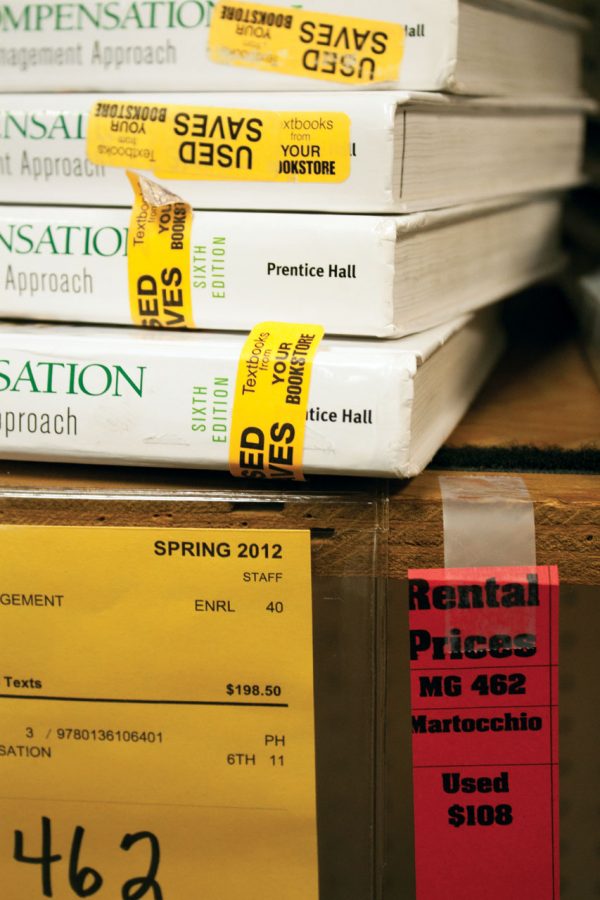Textbook prices cause community to find ways to keep costs down
March 8, 2012
Students and teachers are looking for new ways to reduce the cost of their textbooks, due to the ever increasing cost of tuition, dorms and other student expenses.
Many students have turned to used textbooks, textbook rental programs, e-books, online shopping or simply don’t buy textbooks due to their cost.
Woody Truitt, co-owner of the Off-Campus Bookstore, spoke at a recent Student Government Association meeting about how a university textbook adoption program could save students 50 percent on their textbook costs.
“I gave the example there that—I believe my records show North Carolina State—in the first semester that if they went to a book adoption program that, in five classes alone, they saved the students that were taking those classes over $250,000 in book expense,” Truitt said.
Truitt said that bookstores could offer higher buyback prices if textbooks were guaranteed to be used for a set period of time.
“If we don’t, though, then we simply buy back a small amount at a preferred rate, and the rest we buy back at whatever the national wholesale book value is on that textbook, and generally that is not very much,” he said.
Holly Rochester, a UNA student, rents her textbooks in the spring due to the uncertainty of whether she can sell her textbooks back.
“There’s no point in paying that much when, more than likely, the next semester, they’re not going to use that book, and then you’re not going to be able to sell it back,” she said.
Many professors are sympathetic to the rising cost of college life and are opting for nontraditional textbooks over traditional ones.
“The favorite text I have for one of my classes is a paperback that can be purchased through Amazon for like $10,” said Dr. Beth Garfrerick, a professor of communications. “I love to go with books like this. It bothers me that students are spending so much money on textbooks overall.”
Some universities offer textbook exchange programs to help lower the cost of textbooks to students.
“There are efforts out there on some campuses to help students through listings or have some sort of a book fair,” Garfrerick said. “Instead of having to exchange cash, they just exchange books.”
Many students feel pressured by professors to buy the latest edition of textbooks, even if the text has not changed substantially.
“It was emphasized highly that we need to get the second edition of the book,” said Heather Simmers, a UNA student. “In basic English composition, they’re like ‘you need this edition because it has the updated MLA formatting.’ Just one or two little rules that they change from this season to this season.”
While students may be concerned about professors being persuaded by textbook companies to require the latest editions, there have been newly enacted laws preventing such incentives. Section 36-25-5(a) of the Code of Ala., (1975) says: “No public official or public employee shall use or cause to be used his or her official position or office to obtain personal gain for himself or herself, or family member of the public employee or family member of the public official, or any business with which the person is associated unless the use and gain are otherwise specifically authorized by law.”



![Caleb Crumpton [COURTESY OF UNA SGA]](https://theflorala.com/wp-content/uploads/2024/07/caleb-crumpton-courtesy-of-SGA-425x600.jpg)






